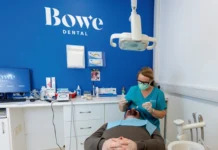Irish home-based workers snack more, eat less healthily, and work longer hours, Compass Group Global Eating at Work survey reveals
Employees who work from home are more likely to eat indulgent foods, snack between meals, and work longer hours than their workplace-based colleagues, new research from food services company, Compass Group, and the global market intelligence agency, Mintel, indicates.
More than half of workers globally said they struggle to maintain healthy diets while at work, with employees who work from home finding it hardest to resist temptation.
Irish figures from Compass Group Ireland show that 53% of home-based and hybrid workers admit to regularly eating indulgent foods during their working day.
They were also found to snack on average 1.9 times a day, almost 20% more than work-based employees. Eating high-calorie snacks such as chocolate during breaks (36% of home workers vs 26% of work-based employees) was also more of a temptation for those working from home here.
HEALTHY EATING EXPECTATIONS AND REALITIES
Analysing insights from 35,000 workers across 26 countries, Compass Group’s Global Eating at Work Survey 2023 found a majority of workers recognise the productivity and wellbeing benefits of a healthy diet during their working week.
67% of respondents said that what they eat and drink at work has a direct impact on their productivity.
In the Irish cohort, 77% of workers said the food and drink they consume has a direct impact on how they feel, while 85% agreed that eating and drinking healthily is essential to long-term health.
75% of hybrid workers here said they make a concerted effort to eat more healthily on days they are in the workplace. They also want more guidance and support from employers to achieve this.
77% of Irish employees with a staff restaurant say they expect food outlets in the workplace to help them make healthier nutrition choices.
AGE RELATED EATING HABITS
Healthy eating is a generational thing too, it appears. Younger workers in Ireland are most interested in healthy eating at work, and how the food they eat impacts their productivity.
Millennials are most likely to choose a healthy snack during their breaks (48% vs 44% of Baby Boomers and 37% of Gen Z).
Gen Z snack more than any other demographic, averaging 2.3 snacks per working day, sometimes replacing a main meal. Baby Boomers are most likely to grab a quick sandwich for lunch, whereas younger generations favour a hot meal.
A much higher proportion, 87% of the youngest cohort, Gen Z, agree that what they eat and drink at work directly impacts their productivity, while just 56% of Baby Boomers in Ireland agree.
WORK-LIFE BALANCE
The Compass Group survey also revealed that home-based workers are nearly three times more likely than workplace-based colleagues to take exercise during the working day.
However, 6 in 10 hybrid workers said they tend to work longer hours when working from home. 50% of home-based workers eat lunch alone, compared to just a third of workplace-based employees, adding to feelings of isolation. The research also highlighted that hybrid workers miss the opportunity to socialise with colleagues during their working day, with 60% saying they would like to eat lunch with colleagues more often.
Deirdre O’Neill, Compass Ireland Managing Director, says workers want to adopt healthier lifestyles, and feel that what they eat affects their energy and wellbeing, especially during the working day.
“Obviously, however, with snacks readily available in the kitchen cupboard, and the hassle of planning and preparing balanced meals, employees who work from home are finding it hardest to maintain healthy eating habits while working.”
The Irish foodservices boss maintains that, because hybrid workers want to catch up with colleagues and to eat more healthily on the days they are in the office, employers can enhance the health of their people, and encourage them back into the workplace more often, through good food offerings, breakout spaces and wellbeing initiatives.
Niamh Quinn, Senior Nutritionist at Compass Group Ireland, says the foodservices business is changing its approach to nutrition in the workplace, to nudge consumers towards healthier meal and snack choices that enhance wellbeing.
“In recent years we have assessed what employees want, and have expanded the variety of healthy food options we offer in work settings, optimising portion sizes, cutting ultra-processed foods from menus, and having more slow-release energy snacks to boost employee drive and productivity.”












